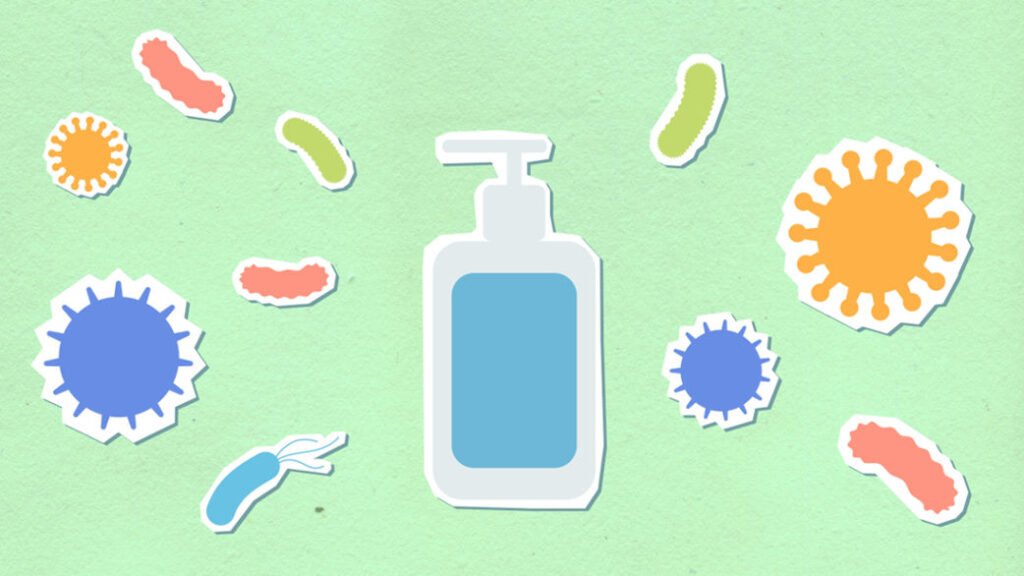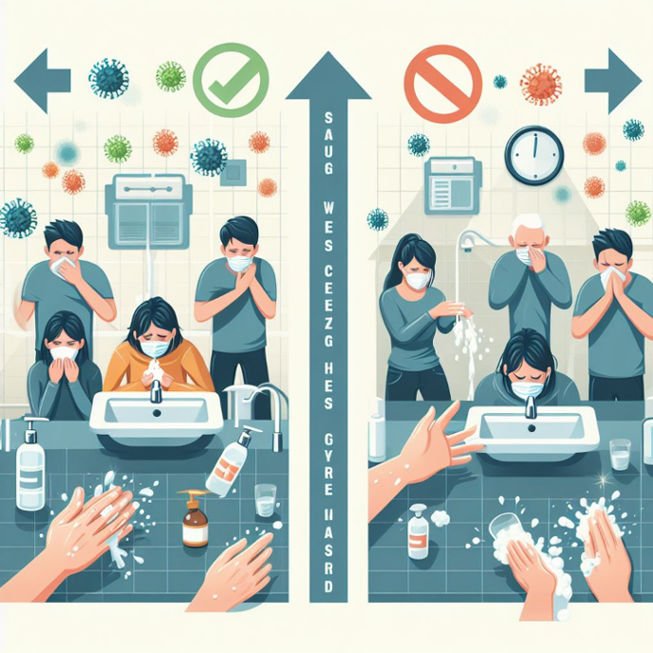What is a germ?
Microbes are what germs are. This indicates that the only way to observe them is under a microscope. In the land, water, and air, they are present everywhere. Germs are also present on your skin and throughout your body. Many microorganisms may dwell in and on our bodies without causing harm. Some of them even help us stay healthy. However, some bacteria can cause illness. Germ-borne illnesses are classified as infectious diseases.
How do pathogens propagate?
Germs can spread in a variety of ways, such as:
- By touching a person who has the germs or making additional intimate contact with them, such as kissing, hugging, or sharing cups or eating utensils
- Breathing air when a person with the infection coughs or sneezes
- When changing diapers, for example, you come into contact with someone who is carrying the germs and then your mouth, nose, or eyes.
- Through contacting germ-infested things and surfaces and then touching your eyes, nose, or mouth
- From mother to baby during pregnancy and/or childbirth.
- From animal or bug bites
- From contaminated food, water, soil, or plants
Detailed Guide about Spreading Germs

Nose, mouth, or eyes to hands to others
Germs from the nose, mouth, or eyes can spread to hands through sneezing, coughing, or rubbing the eyes, causing transmission to other family members or friends. Simply washing your hands can help you avoid common colds and eye infections.
Food hands
A sick food preparer who neglects to wash their hands after using the restroom spreads germs from dirty hands to food. The Bacteria are subsequently spread to individuals who consume the meal. Cleaning your hands after using the restroom and before preparing meals is an easy method to avoid this.
Food to hands to food
Germs can spread from raw foods like chicken to hands during meal preparation. Salads and other raw meals are contaminated by the bacteria on the hands. Cooking raw food destroys the germs, but the salad stays contaminated.
A child with diarrhea at the hands of other children
Diarrhea-infected youngsters can spread germs to their parents’ hands during diaper changes. The germs that cause diarrhea spread to others if the parent does not wash their hands right away.
People to animals
When interacting with animals, it’s important to wash your hands after handling them or any surfaces they come into contact with.
Personal hygiene teaching exercises for children
| 1) Routine instruction 2) Washing dirty hands 3) Making use of music 4) Providing positive reinforcement 5) Creating visual displays 6) Exciting science experiments 7) Classroom exercises 8) Giving out homework |
Adverse consequences of inadequate personal hygiene
- Still not persuaded it’s worth all the effort? Just look at all of these (not) fun ailments caused by inadequate personal hygiene.
- Acanthamoeba keratitis (AK): an infection that can cause blindness, frequently caught through contaminated contact lenses.
- The foot of an athlete: a foot fungal infection
- Body lice are parasitic insects that live on clothing and consume human blood.
- Chronic diarrhea is diarrhea caused by parasites, bacteria, or viruses that last more than 2 weeks.
- Dental caries: bacterially-induced tooth deterioration
- Head lice are parasitic insects that reside in hair and consume human blood.
- Hot tub rash (pseudomonas dermatitis/folliculitis) is a skin ailment caused by polluted water.
- Pinworms are little worms that dwell in the intestine and produce extreme itching at night when female worms crawl out of the rectum to lay eggs.
- Pubic lice (“crabs”) are parasitic insects that attach themselves to coarse body hair and feed on blood.
- Ringworm (tinea), is a fungal skin illness.
- Scabies are microscopic mites that live on human skin.
- Swimmer’s ear (otitis externa): an infection caused by the water remaining in the ears.
- Trachoma: an infection that leads to blindness.
FAQs
What is the connection between good hygiene and disease spread?
Practicing proper sanitation and washing is crucial in reducing illness transmission. Cleaning and disinfecting surfaces, particularly hard, nonporous surfaces, as needed with proper chemicals reduces the number of germs on surfaces and thus the risk of infection.
How can you prevent the spread of germs?
Wash your hands after interacting with anyone who is sneezing, coughing, or blowing their nose. Towels, cosmetics, toys, and other items that may be infected with respiratory infections should not be shared. Never share utensils, food, or drink containers with other people.
What is good hygiene practices?
Personal hygiene refers to the cleanliness of your body. Additionally, it helps shield you against diseases like COVID-19, colds, and the flu. Washing your hands with soap eliminates bacteria that might make you sick.
What are 5 ways germs spread?
Sneezing, coughing, or rubbing the eyes can spread germs to the hands, which can subsequently be passed on to other family members or friends.
Hands-on food
Food from hands to food Infection spreads from children to other children and from animals to humans.

I’m a seasoned content creator with 6+ years of experience crafting engaging, SEO-optimized content that drives traffic and rankings. I excel in keyword research, link building, and guest posting, ensuring your brand reaches new heights.

